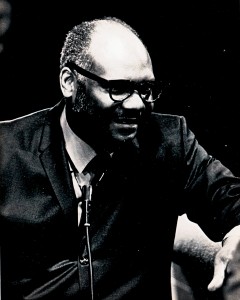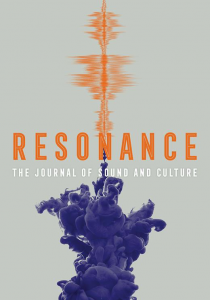MY BLOG

For this first post, I’d like to take you back to the mid-1940s.
During the World War II years, Richard Durham had earned a deferment from military service because of a long-standing medical condition. He stayed in Chicago, working as a reporter for the popular, black-owned and operated Chicago Defender newspaper. But like thousands of other Americans during that war, Durham regularly wrote to his friends and younger brothers stationed at army or naval bases around the world, updating them on events large and small at home.
And his writing – conversational and evocative – often bounced off the page, demonstrating Durham’s ability to transport his readers into his world. His lyrical writing revealed his poetic roots. Durham had fallen in love with poetry as a teenager and some of his early poems were published in local publications.
In an undated letter to his brother Earl, Durham reported on a concert he had recently attended featuring one of his favorite artists. The letter was probably written during a Christmas holiday season, since Dick told his sailor brother that he was glad Earl had received the fruitcake he’d sent. “They say the older fruitcakes get the better they taste. I wouldn’t know, though,” Durham added. “Never kept one long enough. Now for the main dish.”
Dick went on to describe a night in Chicago’s Civic Opera House where “people overflowed into the bandstand and many didn’t get in.” The sold out crowd was ready to party to the sounds of the Edward “Duke” Ellington Band. Duke and his long standing, hard playing band members divvied up portions of Ellington’s “Black and Tan Suite,” and they treated eager listeners to one of Ellington’s new compositions, A New World A ‘Comin. Durham thought that the long, beautiful piece was almost “otherworldly” with a “strange, subdued, joyful quality about it.” He missed however the swinging, danceable rhythms found in older Ellington hits like The Mooche or Echoes of the Jungle.
Durham wrote:
I kept waiting for an old-fashioned, round house, gut-bucket,
dirty-dozen, call-the-cops, pass-the-whiskey-quick type of jump
[tune] like Stompy Jones!
Many a jitt [jitterbug] was holding his breath waiting for it to come.
Many a cat was ready to jump into the bandstand and [dance a] Suzy-Q
where Tchaikovsky had been played the night before.
A mob of hep-chicks wanted to scream, Hallelujah!
But [Ellington] didn’t try for it.
He was shooting after different game.
He didn’t want to “bounce,” he wanted to be beautiful.
And he was.
But I wish…
Please come back for more Richard Durham gems next month.
